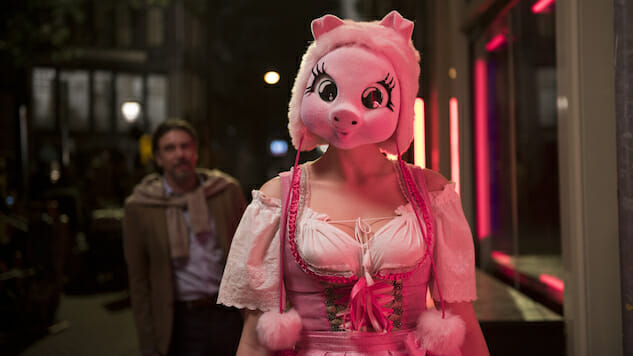“Desperate Times” Call for Desperate Measures in a Pitch-Dark Episode of Killing Eve
(Episode 2.04)
Photo: Parisa Taghizadeh/BBCAmerica
Besides the “cock-up” interlude that opens the episode, in which Carolyn’s (Fiona Shaw) superior reads her for filth for allowing Villanelle (Jodie Comer) and Konstantin (Kim Bodnia) to elude capture, “Desperate Times” is Killing Eve’s most serious episode to date—even the episode built around Bill’s murder had a lighter touch than this. It’s not absent humor, though, so much as trending away from it. Shortly after the “bloody asshole” tirade at MI-6, Villanelle screams, “This is so BORING!” at a museum in Amsterdam; later, in the line of the hour, she calls after an Instagrammer who wants her photograph, “Get a real life!” (In fairness, V’s architectural pink dress and pyramidal gold earrings are to die for.) Eve herself (Sandra Oh) gets in on the act, admitting that, of the Doctor Who companions, she’d jerk it to Rose Tyler: “Come on! She’s adorable.” Then the mirth evaporates. The mischief runs its course. And “Desperate Times” brings the characters, most especially Villanelle, to a new nadir. The question is, where does Killing Eve go next?
-

-

-

-

-

-

-

-

-

-

-

-

-

-

-

-

-

-

-

-

-

-

-

-

-

-

-

-

-

-

-

-

-

-

-

-

-

-

-

-








































